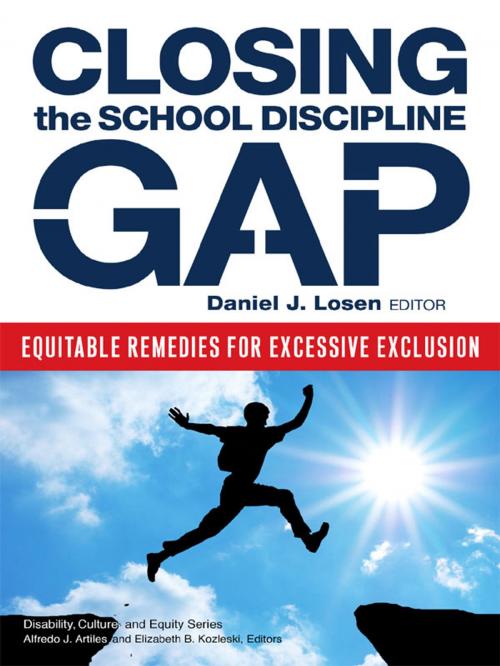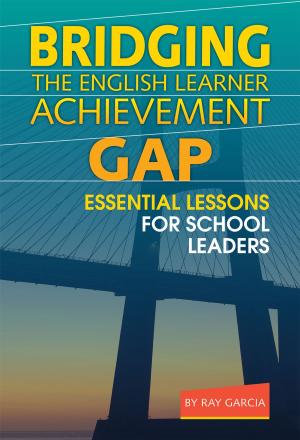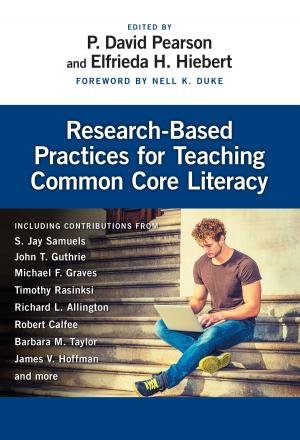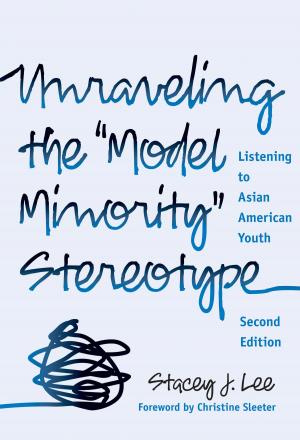Closing the School Discipline Gap
Equitable Remedies for Excessive Exclusion
Nonfiction, Reference & Language, Education & Teaching, Educational Theory, Educational Reform, Administration| Author: | ISBN: | 9780807773499 | |
| Publisher: | Teachers College Press | Publication: | December 15, 2009 |
| Imprint: | Language: | English |
| Author: | |
| ISBN: | 9780807773499 |
| Publisher: | Teachers College Press |
| Publication: | December 15, 2009 |
| Imprint: | |
| Language: | English |
Educators remove over 3.45 million students from school annually for disciplinary reasons, despite strong evidence that school suspension policies are harmful to students. The research presented in this volume demonstrates that disciplinary policies and practices that schools control directly exacerbate today's profound inequities in educational opportunity and outcomes. Part I explores how suspensions flow along the lines of race, gender, and disability status. Part II examines potential remedies that show great promise, including a district-wide approach in Cleveland, Ohio, aimed at social and emotional learning strategies.
Closing the School Discipline Gap is a call for action that focuses on an area in which public schools can and should make powerful improvements, in a relatively short period of time.
Contributors include Robert Balfanz, Jamilia Blake, Dewey Cornell, Jeremy D. Finn, Thalia González, Anne Gregory, Daniel J. Losen, David M. Osher, Russell J. Skiba, Ivory A. Toldson
“Closing the School Discipline Gap can make an enormous difference in reducing disciplinary exclusions across the country. This book not only exposes unsound practices and their disparate impact on the historically disadvantaged, but provides educators, policymakers, and community advocates with an array of remedies that are proven effective or hold great promise. Educators, communities, and students alike can benefit from the promising interventions and well-grounded recommendations.”
—Linda Darling-Hammond, Charles E. Ducommun Professor of Education, Stanford University
“For over four decades school discipline policies and practices in too many places have pushed children out of school, especially children of color. Closing the School Discipline Gap shows that adults have the power—and responsibility—to change school climates to better meet the needs of children. This volume is a call to action for policymakers, educators, parents, and students.”
—Marian Wright Edelman, president, Children’s Defense Fund
Educators remove over 3.45 million students from school annually for disciplinary reasons, despite strong evidence that school suspension policies are harmful to students. The research presented in this volume demonstrates that disciplinary policies and practices that schools control directly exacerbate today's profound inequities in educational opportunity and outcomes. Part I explores how suspensions flow along the lines of race, gender, and disability status. Part II examines potential remedies that show great promise, including a district-wide approach in Cleveland, Ohio, aimed at social and emotional learning strategies.
Closing the School Discipline Gap is a call for action that focuses on an area in which public schools can and should make powerful improvements, in a relatively short period of time.
Contributors include Robert Balfanz, Jamilia Blake, Dewey Cornell, Jeremy D. Finn, Thalia González, Anne Gregory, Daniel J. Losen, David M. Osher, Russell J. Skiba, Ivory A. Toldson
“Closing the School Discipline Gap can make an enormous difference in reducing disciplinary exclusions across the country. This book not only exposes unsound practices and their disparate impact on the historically disadvantaged, but provides educators, policymakers, and community advocates with an array of remedies that are proven effective or hold great promise. Educators, communities, and students alike can benefit from the promising interventions and well-grounded recommendations.”
—Linda Darling-Hammond, Charles E. Ducommun Professor of Education, Stanford University
“For over four decades school discipline policies and practices in too many places have pushed children out of school, especially children of color. Closing the School Discipline Gap shows that adults have the power—and responsibility—to change school climates to better meet the needs of children. This volume is a call to action for policymakers, educators, parents, and students.”
—Marian Wright Edelman, president, Children’s Defense Fund















